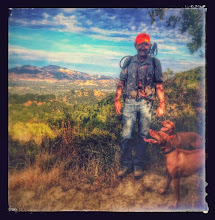It is strange how tenaciously popular memory clings to the bits of eloquence men have uttered, long after their deeds and most of their recorded thoughts are forgotten, or but indifferently remembered. However, whenever and as long as the name of the late Senator George Graham Vest of Missouri is mentioned it will always be associated with his love for a dog.
Many years ago, in 1869, Senator Vest represented in a lawsuit, a plaintiff whose dog "Old Drum" had been willfully and wantonly shot by a neighbor. The defendant virtually admitted the shooting, but questioned to the jury the $150 value plaintiff attributed to this mere animal. To give his closing argument, George Vest rose from his chair, scowling, mute, his eyes burning from under the slash of brow tangled as a grape vine. Then he stepped sideways, hooked his thumbs in his vest pockets, his gold watch fob hanging motionless, it was that heavy. He looked, someone remembered afterwards, taller than his actual 5 feet 6 inches, and began in a quiet voice to deliver an extemporaneous oration. It was quite brief, less than 400 words:
"Gentlemen of the jury: the best friend a man has in the world may turn against him and become his worst enemy. His son or daughter that he has reared with loving care may prove ungrateful. Those who are nearest and dearest to us, those whom we trust with our happiness and our good name, may become traitors to their faith. The money that man has, he may lose. It flies away from him, perhaps when he needs it the most. A man's reputation may be sacrificed in a moment of ill-considered action. The people who are prone to fall on their knees to do us honor when success is with us may be the first to throw the stone of malice when failure settles its cloud upon our heads.
The one absolutely unselfish friend that a man can have in this selfish world, the one that never deserts him and the one that never proves ungrateful or treacherous... is his dog.
Gentlemen of the Jury: a man's dog stands by him in prosperity and in poverty, in health and in sickness. He will sleep on the cold ground, where the wintry winds blow and the snow drives fiercely, if only he may be near his master's side. He will kiss the hand that has no food to offer, he will lick the wounds and sores that come in encounters with the roughness of the world. He guards the sleep of his pauper master as if he were a prince. When all other friends desert he remains. When riches take wings and reputation falls to pieces, he is as constant in his love as the sun in its journey through the heavens. If fortune drives the master forth an outcast in the world, friendless and homeless, the faithful dog asks no higher privilege than that of accompanying him to guard against danger, to fight against his enemies, and when the last scene of all comes, and death takes the master in its embrace and his body is laid away in the cold ground, no matter if all other friends pursue their way, there by his graveside will the noble dog be found, his head between his paws, his eyes sad but open in alert watchfulness, faithful and true even to death."
The jury deliberated less than two minutes then erupted in joint pathos and triumph. The record becomes quite sketchy here, but some in attendance say the plaintiff who had been asking $150, was awarded $500 by the jury. Little does that matter. The case was eventually appealed to the Missouri Supreme Court, which refused to hear it.
NOTE: The statue of "Old Drum" looks a whole lot like a well-built Vizsla.
A statue of "Old Drum" was erected on the Johnson County Courthouse Square in Warrensbug, Missouri, where the trial occurred. The statue still stands there today.












No comments:
Post a Comment